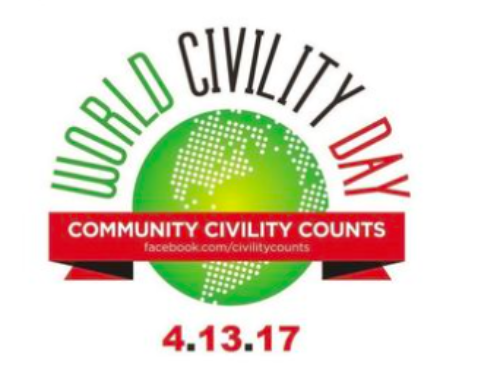For the 2018-2019 fiscal year, the National Civility Center has established its key strategic focus to be “The 3.5% Community Civility Initiative”, inspired by the work of Erica Chenoweth.
Chenoweth is an American political scientist. Her research-based message is that under certain conditions it takes only 3.5% of a group to make change via organized, nonviolent resistance.
For more than a century, from 1900 to 2006, campaigns of nonviolent resistance were more than twice as effective as their violent counterparts in achieving their stated goals. By attracting impressive support from citizens, whose activism takes the form of protests, boycotts, civil disobedience, and other forms of nonviolent noncooperation, these efforts help separate regimes from their main sources of power and produce remarkable results, even in Iran, Burma, the Philippines, and the Palestinian Territories.
Links to details of Chenoweth’s work appear at the end of this document. We are deeply grateful to Chenoweth for her permission to NCC to link our focus this year to her work, which inspired us to adapt her premise and apply it to our Mission.
While much of the context of Chenoweth’s work focused on alternatives to armed insurrections in the context of dictatorship, ongoing war, and other forms of extreme violence and oppression, incivility is rife throughout the world and, in our experience, can be likened to a “war of incivility” being waged in our communities, on-line, in the public square, schools, sports arenas, workplaces, etc.
We believe that choosing Civility is a form of nonviolent resistance. As such, if it is possible that if and/or when just 3.5% of the people in these contexts and settings change their mindset from being reactive to incivility to choosing Civility, positive change can occur.
Essentially, we are suggesting that people approach Civility as an act of nonviolent resistance and choose Civility even in the face of incivility. Here are some examples of what this looks like in real life:
- • Don’t respond to incivility with more incivility
- • Exercise restraint, lead with kindness
- • Assume the best intent of others
- • Take responsibility for our own part in creating uncivil homes, communities and workplaces
- • Avoid labeling people and instead highlight unproductive behaviors
- • Determine and focus on solutions to problems people cite when being uncivil
- • Interrupt incivility with a civil approach e.g., civil dialogue, actively listening to others, etc.
- • Sign the “3.5% Choose Civility” pledge that appears on the National Civility Center homepage, www.civilitycenter.org
When people sign the pledge, they become General-level Member Ambassadors of NCC (at no fee) and will be added to our mailing list for our newsletter. These members will also be able to list their Civility events on the Civility Calendar (http://www.civilitycalendar.com/) for free and access over 1,000 Civility tools and supports.
https://www.theguardian.com/commentisfree/2017/feb/01/worried-american-democracy-study-activist-techniques?CMP=share_btn_tw
TEDX Boulder Talk: https://www.youtube.com/watch?v=YJSehRlU34w&vl=en
https://www.quora.com/What-is-the-difference-between-passive-resistance-and-non-violence




Leave A Comment